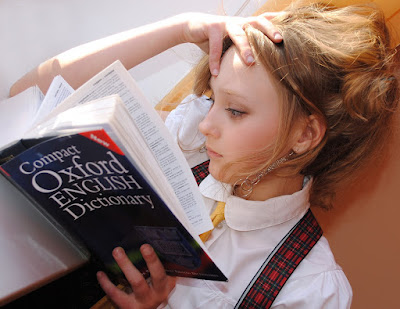Pronouns: The Unsung Heroes of Language
Introduction:
In the vast landscape of language, pronouns may not be the most glamorous words, but they are undoubtedly the unsung heroes of communication. Imagine a world without pronouns, where every sentence began with a name or a noun - it would be cumbersome, repetitive, and downright awkward. In this blog post, we'll explore the world of pronouns, uncovering their importance, various types, and the role they play in making our language efficient and expressive.
What Are Pronouns?
Pronouns are words that stand in for nouns or noun phrases. They allow us to refer to people, places, things, or ideas without constantly repeating the same nouns. Instead of saying "John is a writer. John wrote a book. John's book is famous," we can use pronouns to say, "John is a writer. He wrote a book. His book is famous." Pronouns simplify and streamline our language.
The Many Types of Pronouns:
Pronouns come in various forms, each serving a unique purpose in our language. Let's explore some of the most common types:
Personal Pronouns: These replace specific individuals or things. They include "I," "you," "he," "she," "it," "we," and "they." Personal pronouns vary based on the gender and number of the referent.
Demonstrative Pronouns: These point to a specific thing or group of things. "This," "that," "these," and "those" are demonstrative pronouns. For instance, "This is my car."
Possessive Pronouns: These indicate ownership or possession. Examples include "mine," "yours," "his," "hers," "its," "ours," and "theirs." For example, "The book is mine."
Relative Pronouns: These introduce relative clauses and connect them to the noun they describe. Common relative pronouns are "who," "whom," "whose," "which," and "that." "The woman who won the race is my friend."
Interrogative Pronouns: These are used to ask questions. "Who," "whom," "whose," "which," and "what" are interrogative pronouns. For example, "Who is that?"
Indefinite Pronouns: These refer to non-specific or unknown people or things. Examples include "all," "none," "some," "any," "everybody," "nobody," and "anybody." "Everybody loves a good story."
The Importance of Pronouns:
Pronouns serve several vital functions in our language:
Efficiency: Pronouns make communication more efficient by avoiding repetition. They allow us to convey information without continually restating nouns.
Clarity: Pronouns clarify who or what is being referred to in a sentence. They help avoid confusion and make writing and speaking more concise.
Variety: Pronouns allow for variety in sentence structure and style. They make language more engaging and less monotonous.
Inclusivity: Gender-neutral pronouns, like "they/them," promote inclusivity and respect for diverse gender identities.
Conclusion:
In the grand tapestry of language, pronouns are the threads that weave it all together. They make our speech and writing more efficient, clear, and engaging. So, the next time you utter "he," "she," "it," or "they," take a moment to appreciate the unsung heroes of language that make communication a breeze. Pronouns may be small words, but they carry the weight of the entire language on their shoulders, making the art of communication possible.
online quiz with multiple-choice questions (MCQs) on pronouns:
Comments
Post a Comment